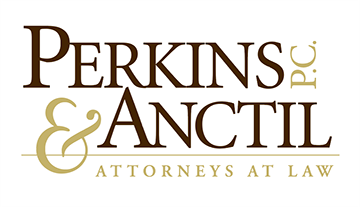Written By: Scott J. Eriksen, Esq.
The Game of Thrones fans among you will have heard the ominous words of House Stark, “Winter is Coming,” used to warn against the imminent cold and precipitation of everyone’s favorite season. Just as they do in George R.R. Martin’s epic fantasy series, these words herald an unpleasant truth for many community associations and managers alike: winter will bring bitter, freezing temperatures, ice and snow. Yet as all managers and boards know, it is the water associated with winter that has proven to be the real enemy to owners across the Northeast, particularly during last year’s unprecedented snowfalls.
Guarding against this winter, and the water, is of paramount importance to all our clients, and one area of particular vulnerability is abandoned or vacated units. Forsaken or neglected units, which may be owned by banks, often present a considerable understated threat to communities. In associations where units are conjoined or attached, freezing temperatures can burst pipes and sprinkler lines in areas adjacent to these empty units. The damage from these bursts is seldom confined to the empty unit alone, typically permeating to other units or common areas.
It is important that associations and managers identify and properly stabilize these units to avoid water damage, but access can be tricky and laden with traps for the unwary. Can the association or agent simply barge in and turn on the heat? What if the owner returns and claims (truthfully or not) that property is missing from the unit? What if that property is irreplaceable – a family member’s Medal of Honor, priceless artwork or other heirlooms? How can proactive associations and managers shield themselves from the potential liability associated with such claims?
For starters, the good news is that both the Massachusetts Condominium Act (M.G.L. c. 183A) and most condominium documents authorize associations and their agents to enter into units in order to address health and safety emergencies and to take certain preventative or remedial action. Specifically, M.G.L. c. 183A, Section 4(2) provides that “[t]he organization of unit owners, its agent or agents shall have access to each unit from time to time during reasonable hours for the maintenance, repair or replacement of any of the common areas and facilities therein or accessible therefrom or for making emergency repairs therein necessary to prevent damage to the common areas and facilities or to another unit or units…” In the face of quickly dropping temperatures, we advise clients that they may have the immediate authority to enter a unit and take necessary remedial action under the terms of the documents and applicable law.
However, very rarely if ever will the access provisions in the governing documents fully protect an association from potential claims by the unit owner related to trespass, damage to personal property or theft. The most conservative course of action to protect oneself against such claims would be to obtain a court order to enter and act. Unfortunately, however, court action is also likely be more costly and less expedient than proceeding in reliance on the provisions of the condominium documents.
If an association does not elect to obtain a court order, and intends to rely on the provisions of its documents and applicable law, we strongly suggest that the association comply with the following procedure:
- Send notice. The first step in the process, except perhaps in extreme emergencies, should be to send notice to the owner/bank of the intended access/preventative work. To the extent that the governing documents call for a specific time period, consider whether this is realistic in light of the threat of water damage and modify the notice as necessary.
- Obtain a locksmith. This will prevent damage to the unit upon entering and allow you to secure the unit afterwards, which is something that should also be done.
- Obtain a police detail or private security guard. An objective, third-party individual will be will be extremely valuable if the unit owner attempts to claim that the unit or their belongings were damaged or are missing. Be sure the “guard” is there to witness the entire event from opening the unit to securing it upon completion. Be sure that they see everyone entering and exiting the unit and whether or not they are carrying anything in the process. Be sure that they know you will require an affidavit, after-the-fact, stating that they were there, witnessed the entire event and can verify that nothing was damaged or taken during the process.
- Bring a camera. Video is best, but photographs are an acceptable alternative. Use the camera to create evidence of the condition of the unit as you found it and as you left it. Use the camera only on areas visible in plain sight within the unit and do not release the images.
- Minimize the personnel involved. Beyond property management and/or board members and the “guard,” limit the people involved to those necessary for performance of the required work. Be sure that any vendors document their own invoices well and enter, perform services and exit as efficiently as possible.
We realize that taking all of these steps requires time, effort and expense, and that the association may be restricted in light of emergency situations. However, we believe these steps are minimal compared with the time, effort and expense of dealing with a potential claim.
